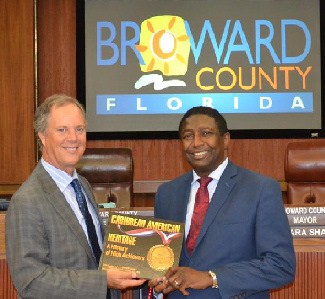Create a Haitian Family Reunification Parole Program to Help Haiti Recover – End the Double Standard
Boston – Massachusetts Governor Deval Patrick has written Department of Homeland Security (DHS) Secretary Janet Napolitano urging her to “mirror” DHS’s recently renewed Cuban Family Reunification Parole Program (FRPP) by promptly paroling into the United States Haitian beneficiaries of already-approved family-based immigrant visa petitions now on a 4 to 11 year wait list in Haiti. This would save lives, reunify families, and help Haiti recover by generating a new source of remittances to a nation devastated by last year’s earthquake.
In his September 22 letter, the Governor writes, “An exercise of parole authority would allow Haitians with an already approved, legal method of entering the United States to be reunited with close family members in the United States while awaiting visa availability. Expediting family reunification through safe and orderly channels would bring families together safely without the risk of a dangerous maritime migration, and would allow for greater remittances to be sent to aid Haiti’s recovery.”
The Governor’s excellent letter joins widespread support for creation of a Haitian FRPP from mayors and city councils, congressional leaders of both parties, policy makers and the editorial boards of the Miami Herald, Washington Post, Chicago Tribune, Philadelphia Inquirer, Boston Globe, Los Angeles Times, Star Ledger, San Antonio Express News, Newsday, and Palm Beach Post.
The United States has approved family-based immigrant visa petitions for 105,000 beneficiaries who nevertheless remain on a wait list of four to eleven years in Haiti, where many may not survive. In contrast, over 30,000 approved Cuban beneficiaries have been paroled into the United States since 2009 alone under the Cuban FRPP which Governor Patrick references in his letter.
In urging the Administration to create a Haitian FRPP as a low-cost way to help Haiti recover, the authors of “Migration as a Tool for Disaster Recovery: A Case Study on U.S. Policy Options for Post-Earthquake Haiti,” Center for Global Development, June 2011, note:
· Rather than waiting 4 to 11 years for a visa in Haiti, beneficiaries could be paroled into the United States where they can be reunited with family and have employment authorization.
· The proposal has merit not only for the humanitarian purpose it would serve but also to enable Haitians to send more remittances home and foster economic development with greater speed.
· Instituting a family reunification parole program for Haitians is simpler than it may appear, since it requires no congressional action.
· The Cuban program’s rationale of saving lives at sea and providing for orderly migration applies with equal force to Haiti.
· No one would get a “green card” any sooner — like the Cubans, they’d just be able to wait for them here w/their families rather than in Haiti.
Since Haiti’s January 12, 2010 earthquake, IJDH has led national efforts to persuade the White House to create a Haitian FRPP. Grassroots efforts are underway in areas including Florida, New York, and Boston, where a dedicated team of volunteers helped secure the Governor’s letter, which the Haitian American community and its supporters strongly welcome and applaud.

